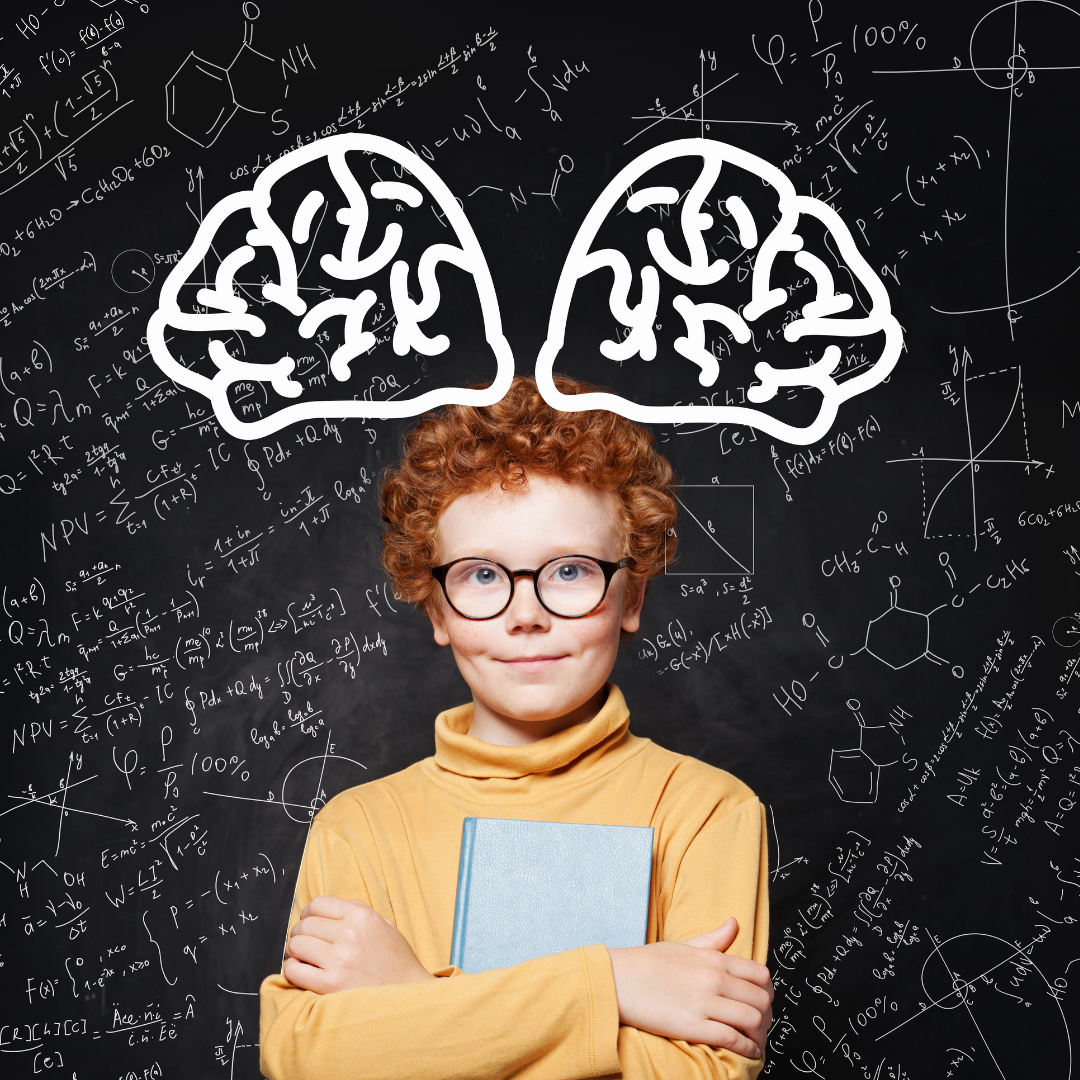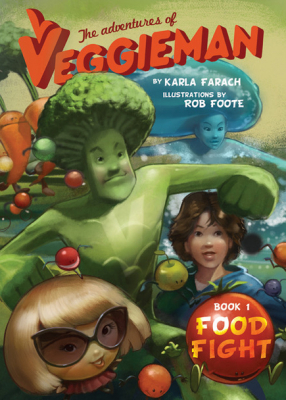
As a parent, you want to see your child thrive, do well in school, develop healthy relationships, and learn skills that will serve them throughout their life. And one of the most important ways to ensure your child’s ability to do these things is by supporting healthy brain development.
The growth of a child’s brain and nutrition go hand-in-hand. In fact, a child’s developing brain has such high nutritional needs during the first 10 years of life when brain development is at its peak level of neurological growth. This is a time when children develop cognitive and behavioral skills, including memory, attention, impulse control, and the ability to multitask.
In this article, we will explore the most important nutrients for a child’s developing brain and some of our favorite ways to get those nutrients through food. But first, let’s look at how a diet of processed junk foods (or “food-like” substances, as we like to say) impact a child’s developing brain and contribute to some of the most common childhood disorders such as attention-deficit/hyperactivity disorder (ADHD), depression and mood instability, and fatigue.
As we’ve discussed in previous articles, junk food is any processed food made from refined and/or artificial ingredients that strips it of its nutritional value. Though it may resemble food, it’s actually a toxic substitute for wholesome sustenance intended to nourish the human body. That means while you’re filling up on empty calories, processed sugars, and inflammatory fats, your body is actually starved of the vitamins and minerals it needs to stay healthy.
A child’s diet often includes a high intake of saturated fat, refined sugars, fast foods, and very little vegetables – leading to a deficiency in foundational nutrients for brain development. One of the most common nutrient deficiencies in children is iron, which can lead to impaired cognition, poor development, ADHD, irritability, and fatigue.
In addition, poor nutrition leads to inflammation in the brain, which can contribute to behavioral problems and impaired academic skills. A study looking at the effects of junk food on the brains of teenagers found those who ate calorie-dense junk foods had problems with self-control and behavioral issues and had an increased risk of developing obesity and metabolic problems later in life. Another study of over 2,000 adolescents found that kids who ate the most junk food were 50 percent more likely to experience depression compared to those who ate more fruits and vegetables per day. Eating junk food can lead to changes in the structure and function of an important part of the brain called the prefrontal cortex, which plays a role in decisions about how to act, decision-making, and risk-taking. This could contribute to a child becoming aggressive, compulsive, or unmotivated. An excessive intake of junk food in teenagers alters the functioning of the brain’s “feel-good” chemical dopamine, which can lead to impaired cognitive control and heightened impulsivity later in life.
As we’ve discussed, a diet rich in processed junk foods and lacking in nutrient-dense whole foods can lead to a wide variety of developmental brain issues and associated cognitive and behavioral problems. So, what exactly are the most important nutrients for supporting healthy brain development in kids and what foods are an excellent source of these nutrients? We’ve put together a list of the top nutrients for healthy brain development in children and adolescents below!
Nutrients for healthy brain development:
- Omega-3 fatty acids, which are essential for proper brain growth function. Low levels of omega-3 fatty acids can cause learning disorders and impact the neurotransmitters dopamine and serotonin, which play a role in healthy mood. Animal-based foods included fatty fish like salmon, mackerel, herring, sardines, and anchovies are excellent sources of the omega-3 fatty acids. Plant sources of omega-3 fatty acids include flax and chia seeds, walnuts, and soybeans.
- Iron is an essential mineral that helps kids stay focused and energized throughout the day. Animal-based iron-rich foods include red meat, oysters, spinach, liver and organ meats. Legumes, pumpkin seeds, and quinoa are excellent plant-based sources. Iron is best absorbed with it is eaten in combination with foods rich in vitamin C, such as tomatoes, red bell pepper, oranges, and strawberries, and dark leafy green veggies.
- B vitamins are a group of eight vitamins that essential for brain development and cognitive function. Below is a list of each vitamin within this group, its role within brain development, and best food sources.
- Vitamin B1 (thiamin) is important for mood balance, stable energy, language development, and memory. It can be found in plant-based foods such as whole grains, dark leafy green veggies, potatoes, and animal-based foods including liver, pork, and eggs.
- Vitamin B2 (riboflavin) plays a role in maintaining the nervous system and eye health. Great plant-based food sources of riboflavin include leafy vegetables, legumes, brewer’s yeast, and mushrooms. This vitamin can be found in animal products as well, including dairy, eggs, and liver.
- Vitamin B3 (niacin) supports stable moods, energy, and memory. It is found in meat and fish as well as plant-based foods such as whole grains, legumes, mushrooms, and nuts.
- Vitamin B5 (pantothenic acid) supports healthy energy, memory, and the production of neurotransmitters. It can be found in animal-based foods such as meat, as well as plant-based foods including whole grains, broccoli, banana, spinach, and sunflower seeds.
- Vitamin B6 (pyridoxine) is important for neurotransmitter function and supports healthy memory. This vitamin can be found in animal-based foods including meat, fish, and eggs. It is also found in plant-based foods such as legumes, nuts, bananas, potatoes, and sunflower seeds.
- Vitamin B7 (biotin) is one of the most important nutrients for brain development; this vitamin helps support the nervous system, mood and stress response. Animal-based food sources include eggs, liver, and pork. Plant-based food sources are leafy veggies, cauliflower, mushrooms, berries, almonds, dark chocolate, peanuts, sweat potatoes.
- Vitamin B9 (folate) is a key nutrient that when it is not consumed in adequate amounts can lead to behavioral issues in children. Food sources include dark leafy veggies, legumes, citrus fruits, beans, and sunflower seeds.
Vitamin B12 (cobalamin) plays an important role in neurotransmitter synthesis and cognitive development; a deficiency in this vitamin can lead to impaired brain growth and impairments in memory, attention, and learning. B12 is found in meat and fish.
- Choline is needed to produce acetylcholine, a neurotransmitter that helps regulate memory and mood. This brain nutrient can be found in animal-based foods such as egg yolks, red meat, liver, salmon, cod, tilapia, chicken, and turkey. Plant foods rich in choline include legumes, and cruciferous veggies like cauliflower, broccoli, and Brussels sprouts.
- Antioxidants are found in many foods, including citrus fruits, strawberries, cherries, blueberries, blackberries and brightly colored vegetables. Antioxidants, such as selenium, zinc, vitamins A, C, and E help balance out inflammation within the body, improve cognition, and decrease brain damage. Other excellent sources of antioxidants include spices such as mint, cinnamon, cloves, and basil, plums, pomegranates, kale, cauliflower, beets, tomatoes, nuts and seeds, beans, and chocolate.
- Protein is made up of amino acids, which form the basis for neurotransmitters. Neurotransmitters are chemical messengers of the brain and nervous system that promote calm and stable moods. Adequate protein intake is essential for brain growth and development, including the production of neurotransmitters, cognitive functions including concentration and learning, and memory. Animal foods are rich in protein, such as red meat, poultry, seafood, and eggs. Plant-based foods are also excellent sources of protein, including legumes and beans, eggs, nuts and seeds, and dairy.
- Vitamin D supports brain function and growth. Fatty fish, fish liver oil, and liver are excellent animal-based food sources of vitamin D. Vitamin D are less available in plant-based foods, however, mushrooms and whole grains do contain some of this vitamin. This nutrient is known as the “sunshine vitamin” because we can also get it by sunlight exposure on our skin. Experts recommend 15-30 minutes of sunlight exposure on the hands and face in the middle of the day during the summer will get your child adequate vitamin D, however, this is a common deficiency, and you may want to have your child’s vitamin D level tested and supplement if it is low. In addition, people with darker skin or living in northern latitudes tend to absorb much less vitamin D from sunlight exposure than those with lighter skin and thus deficiency may be more common in such populations.
- Iodine is needed for the synthesis of thyroid hormones, which play a role in brain development. Deficiency in iodine is a leading cause of brain damage in children and results in poor cognition and motor development. Seaweed is the best plant-based source of iodine. Animal-based sources of iodine include fish, dairy, and eggs. Iodized salt is another source.
- Zinc is important for the regulation of the nervous system and brain development, particularly cognition and motor development. Zinc can be found in animal foods such as oysters, red meat, and poultry. Plant-based foods are also great sources, including whole grains, legumes, nuts, and seeds.
- Copper supports the brain’s energy, development, and ability the learn and remember. Animal-based sources rich in copper include shellfish and organ meats. Plant-based foods rich in copper include whole grains, beans, nuts, and dark leafy green veggies.
Making dietary changes takes some effort but the time and investment is well worth it and will create long-term health benefits for your family for decades to come!










